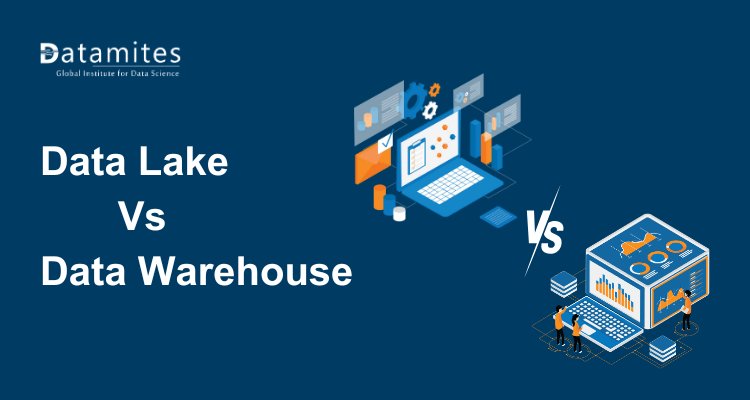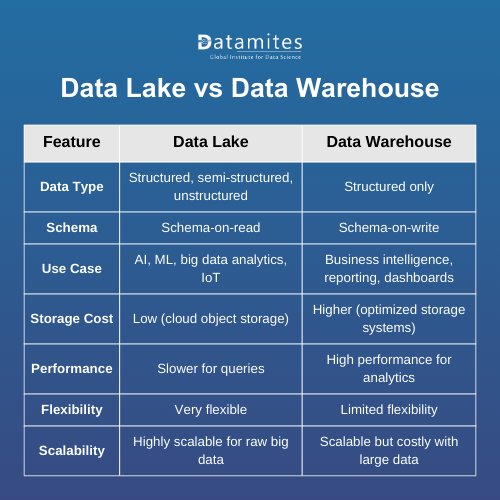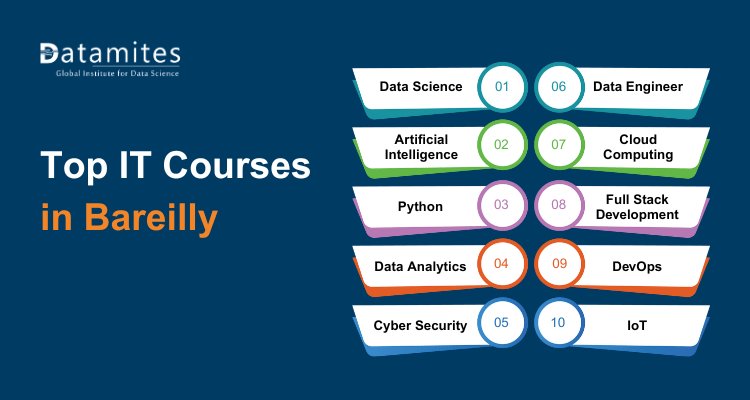Data Lake vs Data Warehouse: Which Is Right for You?
Compare data lakes and data warehouses to understand their differences, benefits, use cases, and cloud options, helping you choose the right data storage solution for your business.

In the era of big data, organizations are collecting massive amounts of information from sources like social media, IoT devices, sales transactions, and customer interactions. Effectively storing and managing this data is essential for gaining meaningful insights, which is where data lakes and data warehouses come into the picture.
Both are widely used in modern organizations, but they serve very different purposes. Understanding the difference between data lake and data warehouse is crucial for making informed decisions about your company’s data strategy. In this blog, we’ll explore a complete data lake and data warehouse comparison, discuss their benefits, use cases, cloud perspectives, and ultimately help you answer the question: which is better, data lake or data warehouse?
What is a Data Lake?
A data lake is a centralized storage system designed to hold raw, unstructured, semi-structured, and structured data at scale. Unlike traditional databases, it follows a schema-on-read approach, meaning data is stored in its raw form and structured only when needed for analysis.
Key Characteristics of Data Lakes
- Supports all types of data: images, videos, sensor logs, JSON files, clickstreams, and structured tables.
- Scalable and cost-efficient: Designed for big data storage on platforms like Hadoop, AWS S3, and Azure Data Lake.
- Schema-on-read: Flexible structure, useful for advanced analytics and machine learning.
- Ideal for innovation: Enables experimentation with raw data for AI and predictive analytics.
Who Uses Data Lakes?
Industries such as healthcare, e-commerce, finance, and technology rely on data lakes for AI model training, IoT analytics, fraud detection, and personalization engines. For example, Netflix leverages data lakes to power its recommendation system by processing massive amounts of viewing data.
What Is a Data Warehouse?
A data warehouse is a structured storage system built to support business intelligence and analytics. Unlike data lakes, warehouses follow a schema-on-write approach, meaning data is cleaned, transformed, and organized before being stored.
Key Characteristics of Data Warehouses
- Structured data only: Optimized for SQL queries, dashboards, and reports.
- High performance: Designed for complex queries and fast retrieval.
- Schema-on-write: Ensures clean, consistent, and reliable data.
- Analytics-ready: Ideal for trend analysis, reporting, and executive dashboards.
Who Uses Data Warehouses?
Common in finance, retail, healthcare, and manufacturing sectors, data warehouses are essential for generating accurate business reports, sales forecasts, and compliance reporting. For example, retailers use them to analyze purchasing behavior and improve inventory management.
Refer to these articles:
- Your Roadmap to Becoming a Data Science Architect
- The Role of Data Science in Protecting Cultural Heritage
- A Beginner’s Guide to Linear Programming for Data Science
Data Lake vs Data Warehouse: The Core Differences
When comparing data lake vs data warehouse, it’s important to look at their core characteristics. Here’s a deeper explanation of how they differ:
Type of Data Stored
- Data Lake: Can store everything structured (like rows and columns in a database), semi-structured (JSON, XML), and unstructured data (videos, audio files, social media feeds, IoT sensor data). It’s like a giant container that doesn’t discriminate between data types.
- Data Warehouse: Stores only structured and processed data. Before data enters a warehouse, it goes through cleaning and transformation to make sure it fits neatly into predefined tables.
Schema Approach
- Data Lake: Works on a schema-on-read principle, meaning you don’t need to define how the data looks before storing it. Structure is applied only when you access or analyze the data. This makes lakes highly adaptable.
- Data Warehouse: Uses schema-on-write, which requires data to be cleaned and formatted before it is stored. This ensures high consistency and accuracy, but reduces flexibility.
Purpose and Usage
- Data Lake: Best for innovation, advanced analytics, AI workloads, big data processing and machine learning where raw data is valuable for exploration.
- Data Warehouse: Built for reporting, dashboards, and business intelligence where accuracy, reliability, and speed of insights matter most.
Performance and Speed
- Data Lake: Can handle massive amounts of data at a low cost, but queries often take longer because the data is raw and not optimized for analysis.
- Data Warehouse: Specifically optimized for analytics and queries. Reports and dashboards run faster because the data is already organized and indexed.
Scalability and Cost
- Data Lake: Extremely scalable and relatively cheaper, especially in cloud environments. Businesses can keep vast amounts of raw data without worrying about high costs.
- Data Warehouse: Scales well too, but the cost rises significantly as data volume grows due to the processing and storage structure it requires.
Flexibility
- Data Lake: Offers unmatched flexibility. Since raw data is stored, organizations can revisit it for new use cases, such as developing new AI models or performing exploratory research.
- Data Warehouse: More rigid because the data structure is predefined. It’s excellent for answering business questions you already know, but less suitable for experimental analysis.
This clearly outlines the difference between data lake and data warehouse while one is designed for innovation and raw data exploration, the other is optimized for structured analytics and reporting.

Refer to these articles:
- How Data Science Is Revolutionizing the Film Industry
- Why Every Data Scientist Must Learn Requirement Elicitation
- Top Data Extraction Tools to Streamline Your Data Collection
Key Benefits of Data Lakes and Data Warehouses
Both data lakes and data warehouses offer unique advantages that help organizations store, manage, and analyze data effectively. Understanding these benefits can guide businesses in choosing the right solution for their data strategy.
Benefits of Data Lakes
The benefits of data lake solutions include:
- Scalability: Handles massive unstructured datasets without slowing down.
- Flexibility: Perfect for AI, ML, and data science projects.
- Cost-effectiveness: Cloud storage options make it affordable for enterprises.
- Future-proofing: Enables experimentation with raw data for new use cases.
Benefits of Data Warehouses
The benefits of data warehouse solutions include:
- High performance: Optimized for analytics, reporting, and dashboarding.
- Data quality: Ensures accuracy and consistency through ETL processes.
- Business focus: Tailored for business users, executives, and analysts.
- Proven reliability: A trusted solution for decades in financial and corporate reporting.
Refer to these articles:
Cloud Perspective: Data Lake vs Data Warehouse in the Cloud
With the rise of cloud computing, most businesses now rely on cloud data lake vs data warehouse solutions:
- AWS: Amazon S3 for data lakes, Amazon Redshift for warehouses.
- Microsoft Azure: Azure Data Lake vs Azure Synapse Analytics.
- Google Cloud: Cloud Storage for data lakes, BigQuery for warehouses.
According to Gartner, 80% of organizations will adopt a cloud-based data strategy by 2025, with many combining both solutions for efficiency.
Which Is Better: Data Lake or Data Warehouse?
The choice depends on your data type, business goals, and budget.
- Data Warehouse: Best for structured data, fast reporting, dashboards, and business intelligence.
- Data Lake: Ideal for unstructured data, advanced analytics, AI/ML projects, and flexible experimentation.
- Data Lakehouse: Combines the best of both structured performance with the flexibility of a lake.
In essence, pick a warehouse for analytics speed, a lake for innovation, or a lakehouse for a hybrid approach.
Many companies are now adopting a data lakehouse model, which combines the flexibility of lakes with the structured performance of warehouses. According to Fortune Business Insights, the global data warehousing market is projected to reach $51 billion by 2030, while the data lake market is expected to grow beyond $24 billion in the same period highlighting strong demand for both.
Additionally, LinkedIn’s job reports show a surge in demand for professionals skilled in data storage solutions, business intelligence, and big data management, indicating how critical these technologies are for future data science careers.
Both data lakes and data warehouses play vital roles in modern data strategies. A data lake is best for handling large, unstructured, and experimental datasets, especially for AI and machine learning. A data warehouse, on the other hand, is perfect for structured reporting, analytics, and decision-making.
The difference between data lake and data warehouse lies in their purpose, design, and use cases. For many organizations, the smartest approach may not be choosing one over the other but embracing both in a hybrid data lakehouse model.
Ultimately, the choice depends on your data type, budget, and long-term business objectives. Whether you’re exploring big data storage or scaling your business intelligence and data management strategy, both solutions can significantly enhance your organization’s ability to leverage data effectively.
Now is an excellent moment to begin your journey into data science. By enrolling in a data science course in Ahmedabad, Hyderabad, Pune, Bangalore, Chennai, Coimbatore, or Mumbai, you gain access to practical learning, hands-on projects, and expert career support that will help you step confidently into this rapidly expanding field. With industries across the globe seeking skilled data science professionals, the right training can unlock diverse and rewarding career opportunities.
Among the top training providers, DataMites Institute is recognized for its industry-focused curriculum and strong emphasis on experiential learning. Through live projects and valuable internship opportunities, DataMites ensures learners not only understand classroom concepts but also apply them effectively in real-world scenarios.
The Certified Data Scientist courses at DataMites, accredited by IABAC and NASSCOM FutureSkills, are designed to equip learners with in-demand expertise in tools, machine learning workflows, and advanced analytics. For those who prefer offline learning, DataMites provides data science training in Hyderabad, Pune, Chennai, Mumbai, Bangalore, Ahmedabad, and Coimbatore. Meanwhile, learners who need flexibility can opt for online programs, which deliver the same high-quality education to students worldwide.





